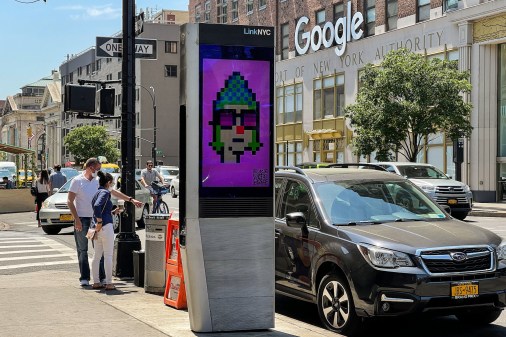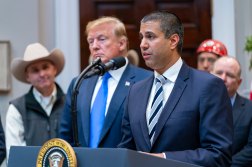California governor vetoes bill to expand 5G infrastructure

A bill that would have cleared the way for telecommunications companies to install small-cell wireless antennas across California was vetoed this weekend by Gov. Jerry Brown.
Brown’s rejection of the bill on Sunday came after mayors said the effort would limit city authority and be a handout to the telecom industry.
Senate Bill 649 would have established a uniform permitting process for the small-cell wireless equipment on utility poles while fixing rates localities charged to lease their infrastructure.
Brown said the bill was too constraining as it was currently written, but he did acknowledge that he supported the technology and infrastructure it sought to develop.
“There is something of real value in having a process that results in extending this innovative technology rapidly and efficiently,” the Democratic governor said in a statement. “Nevertheless, I believe that the interest which localities have in managing rights of way requires a more balanced solution than the one achieved in the bill.”
The veto was a win for mayors in some of the state’s largest cities. Leaders from San Francisco, Los Angeles, San Jose, Oakland, Santa Ana and Long Beach denounced the legislation in June in a letter to one of the bill’s co-sponsors, Sen. Ben Hueso, a Democrat representing San Diego.
The mayors said regulations attached to the bill would have forced installations to move forward even if they threatened public safety. The local leaders also expressed concern that the bill did not compensate cities fairly for the infrastructure they would lease.
“Cities, and the public, are set to lose millions of dollars in revenue that will be transferred directly to corporations under this bill,” the mayors wrote.
On Twitter, many city officials and lobbyists celebrated the veto. Among them was San Francisco Supervisor Mark Farrell, who thanked Brown and decried the bill as a corporate giveaway. Oakland City Council Member Dan Kalb also thanked Brown and said the legislation was a “blatant special interest” offering.
Yet for the bill’s supporters, the governor’s veto represents a roadblock to further progress. Tired of the diverse constraints that many California cities place on infrastructure, proponents hoped the bill would ease zoning laws, permitting, overblown leases and other regulatory burdens for advanced high-speed internet. The emerging technology, they said, would create jobs and help California meet the rising communication needs of its residents.
In an op-ed in the Sacramento Bee, Hueso elaborated on these points and said cities like San Francisco charge telecoms “an astounding $14,500 per pole per year” for use and are holding the wireless system hostage with all their “monopoly prices.”
“My legislation would bring an end to this madness and encourage investment to increase capacity needed to serve low-income communities,” Hueso said. “Municipalities no longer would be able to gouge. The cost of the build-out would be reduced and more telecommunications companies could enter the market and compete.”





